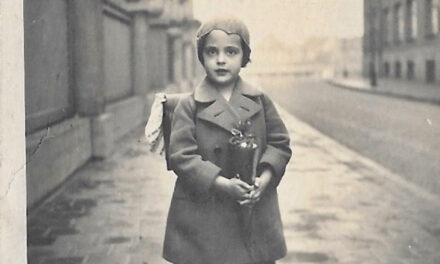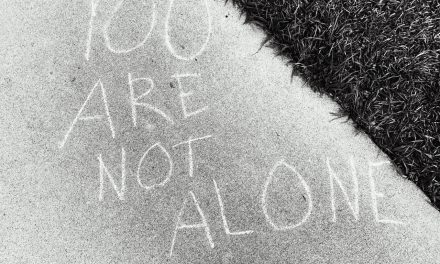He wanted them to squirm a little, to realize that this wasn’t just going to be a casual conversation, a “good, man, how are you” type call. He wanted to talk, open up and tell them how it felt, but not everyone was ready to listen.
A happy life holds hands with sadness. It’s true. If you love, and love deeply, loss is certain. We don’t live forever. I have many friends suffering a loss right now, and I want to be there for them. I’m not always sure how to best help, though I have learned that sometimes listening is enough. I wanted to learn more about providing grief support, so this month’s question posed to newsletter subscribers was:
What has been most helpful to you in your grieving process? What do you wish people understood better? How can your friends better support you?
Sally (whose interview for the Wise Women Project appeared here) lost her husband over ten years ago, and speaks openly about her experience:
Your article on loss really resonated with me when I read it this morning. When Charley was dying I realized how uncomfortable people were around the idea of death and dying. I was very new to the concept as well. My parents were still alive and thriving, my grandparents, who I was not close to, died in my early 20’s – that was all I knew about death.
Charley was very open, eager to share what he was going through, which scared people away at times. Friends would call and say “how you doing” the usual casual hello, and he would respond, “well, I’m dying, how do you think that feels”? I could feel them cringing on the other end of the line, not knowing how to proceed. He wanted them to squirm a little, to realize that this wasn’t just going to be a casual conversation, a “good, man, how are you” type call. He wanted to talk, open up and tell them how it felt, but not everyone was ready to listen.
The friends who really showed up, willing to do the hard work of listening, wiping Charley’s fevered brow with a washcloth, help me change the drenched sheets, cook for us, were invaluable. The ones who called and asked, “Let me know what I can do” were more work for me.
Friends who sent emails describing their lives, day-to-day real life experiences, were a treasure. We needed some positive energy in our world to know that life existed outside of our bubble. We had been living in Boulder for a year at this point, having moved from Oregon, our home for 36 years, to be closer to our daughters. My friend Jane, in Oregon, wrote several times a week. Charley and I looked forward to her descriptions of familiar hikes, the birds she had seen, the snow level on Mt. Hood, the way the clouds moved, the wildflowers in bloom.
The emails that continually asked, “how are you doing, how can I help”? I often ignored. I had more important things to do. I would write Jane back, thanking her for bringing the outside world into our lives, giving me a glimpse of what to look forward to some day. I would share my life with her, my limited landscape, so grateful for each letter. I now do something similar for friends who are caretakers of loved ones, knowing how nourishing it was for me.
After he died, it was the stories that healed me. Stories and photos people sent of their time with Charley. Those made me smile and remember the healthy, fun loving man, who influenced so many people in his short 61 years of life. The cards that invariably came saying, “I am sorry for your loss” I often ripped up with such anger – sad and disappointed that they couldn’t come up with something more original. Those were not my true friends I soon realized. They had sent their card and were now done.
A friend of mine from Oregon, visiting her sisters in Denver, stopped by a few days ago. I had not seen her since her husband, who was a dear friend of mine, died 2 1/2 years ago. We went for a long walk, talking about death and life after the death. I have a few friends now, in my age group, who have lost their husbands, but at the time Charley was dying I knew no one in my position. I felt very alone. Now I am part of a tribe of strong women, who have grown and emerged from what seemed an unbearable grief at the time. We have bonded and connected through the process, much like women who give birth grow and change from that intense experience. We share our stories easily, we understand the hard work involved in both dying and giving birth.
Death can be an opportunity for growth, if you are open to it.
Julia responded from California and made me consider something I hadn’t thought of before.
When a partner dies, no one is a witness to the surviving spouse’s life anymore. (I am assuming here situations where the living spouse is no longer working, children are grown, etc.) No one knows how she likes her coffee, or things of lesser or greater importance (although I think you’d agree that how we like our coffee is of supreme importance!). She is no longer the center of anyone’s life nor is anyone the center of hers. No one is there to ask her how her day went. She eats on a tray with the TV turned on to provide noise that shatters the silence.
I believe that contact is important for these women in the early stages of bereavement. I would gather a group of friends and have everyone take a day of the week. On that specific day, if your turn, call the woman friend in the morning and ask her how she slept. Find out what she is doing that day and if she needs anything. Chat a few minutes. The loss of a companion is especially wrenching in the morning and the evening. Just to have someone care as you start your day makes a big difference. I would do this for at least a couple of months, or as needed by the spouse. Contact and caring are very important to women as they lose their partners. Additionally, I have a friend who texts me a little prayer every day.For these gestures of kindness both large and small, I am grateful.
I received many lovely cards upon my loss, and all relayed compassionate sentiments that may or may not have included such words as “let me know if there is anything I can do.”
Let’s pause right there.
A grieving person does not have the motivation or the energy to contact anyone if they need something. Instead of phrasing the offer for help as one of “let me know …
turn that around and offer specific things such as, “I’m making a chicken stew tonight. I’ll bring some over.” or “I’m going to the store. What can I bring you?” or “I have the weekend free. Would Saturday or Sunday be better for me to come walk the dog with you and have a glass of wine?”Just wording the offer to help in this way makes a world of difference to someone who’s grieving.
Also, continue your support over the long haul. Stay in touch and check in. Once the services are over and everyone has returned to their lives, support is more needed than ever.
I am so grateful to Sally and Julia. We can learn to offer more meaningful support thanks to the sharing of their experiences.
If you want to read more about the loss of a spouse, I recommend “The Year of Magical Thinking” by Joan Didion. It’s heart-wrenching and deeply moving.
“Grief turns out to be a place none of us know until we reach it.” ~ Joan Didion, The Year of Magical Thinking
Finally, if you want to have your voice included in “Your Words,” add your name to the twice monthly newsletter here. Be sure to add Our Stories Today to your address book so you don’t miss an issue!





